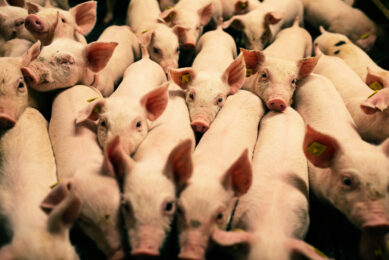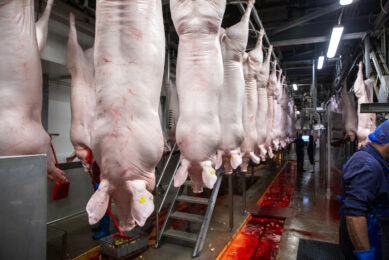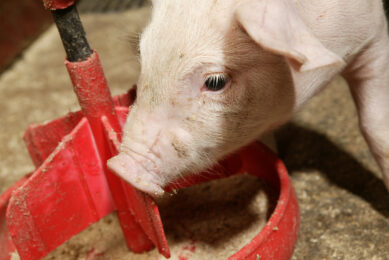PCV2 – growing evidence strain mutation might be the cause of PMWS
There is growing evidence that PMWS (post-weaning multisystemic wasting disease) was caused by a mutant PCV2 (porcine circovirus type 2) strain, which was more pathogenic and was able to express the disease more severely.
There is growing evidence that PMWS (post-weaning multisystemic wasting disease) was caused by a mutant PCV2 strain, which was more pathogenic and was able to express the disease more severely.
More and more isolates of PCV2 are being examined genetically and as the number grows, they can be put into subtypes and further sub-divided into clusters or clades. Work by the Spanish group in the Autonomous University of Barcelona have described this (Olvera and others, 2007).
Clusters
They reported that there were two main subtypes (ST) of PCV2 ST1 and ST 2. Both subtypes could be found commonly in pigs and seemed that both could be found in healthy and PMWS affected pigs. They were able to further subdivide them into ST1, clusters A, B & C and ST2 A-E.
More and more isolates of PCV2 are being examined genetically and as the number grows, they can be put into subtypes and further sub-divided into clusters or clades. Work by the Spanish group in the Autonomous University of Barcelona have described this (Olvera and others, 2007).
Clusters
They reported that there were two main subtypes (ST) of PCV2 ST1 and ST 2. Both subtypes could be found commonly in pigs and seemed that both could be found in healthy and PMWS affected pigs. They were able to further subdivide them into ST1, clusters A, B & C and ST2 A-E.
Cheung and others (2007) from Ames, Iowa in the US also demonstrated that ST 2 had been in the US before the explosion of PMWS in 2005 and the epidemic was primarily caused by ST1. Their recent work showed that they came mainly from cluster 1A. Timmusk and others (2008) from Uppsala, Sweden also showed that the recent outbreak of PMWS was caused by the equivalent of 1A isolates.
Identical isolates
Interestingly, they found that the Swedish isolates were 100% identical in nucleotide sequencing (genetic fingerprinting) to a French isolate, which caused PMWS. Lohse and others (2008) from Denmark also found identical isolates to the Swedes causing PMWS and also postulated that they might be able to bind more effectively on to the host cell’s surfaces, out-competing other PCV2 isolates before penetration and replication.
Grau-Roma and others (2008), also from the Spanish group, found that in a small survey of farms with PMWS, they could consistently identify 1A isolates. They could also find on occasion mixed infections with ST2 isolates but felt that ST1A isolates were the primary cause of PMWS.
From an epidemiological point of view, or how the disease has spread, this could be of major significance. Although the first case of PMWS was reported in Canada it appeared to be a one-off case. The major outbreak of disease seemed to occur in France in the mid-nineties and spread out from there across Europe and the globe and finally to N. America.
The first Canadian case was a ST2 but this did not cause an epidemic, it was not until nearly 14 years later when the ST1A isolates appeared that it took off.
Sporadic diseases
PCV2 type 1 & 2 can cause sporadic associated diseases in artificial infection studies and possibly under adverse production conditions in the field, but it looks increasingly likely that the epidemic of PMWS might have come from a mutation, which resulted in PCV2 ST1A, which then spread around the world.
Fortunately, the PCV2 vaccines appear to protect against both ST1 and ST2 isolates, due to the relative homology or similarity between them, but there may be an opportunity to develop a diagnostic test specifically to identify ST1A.











